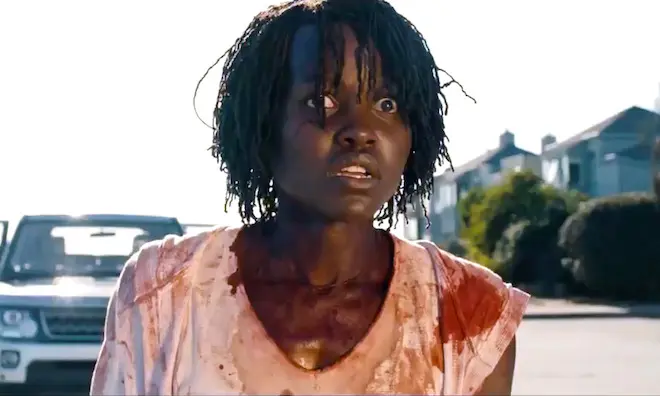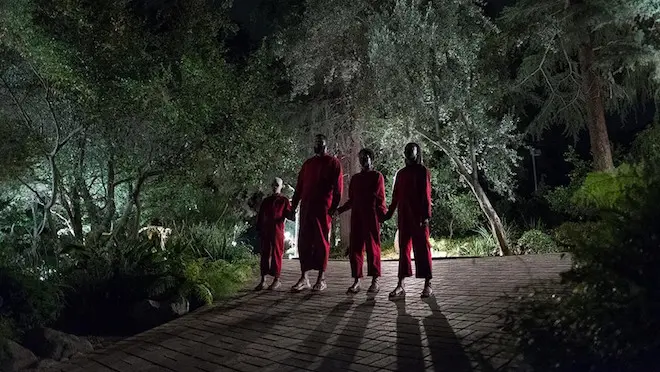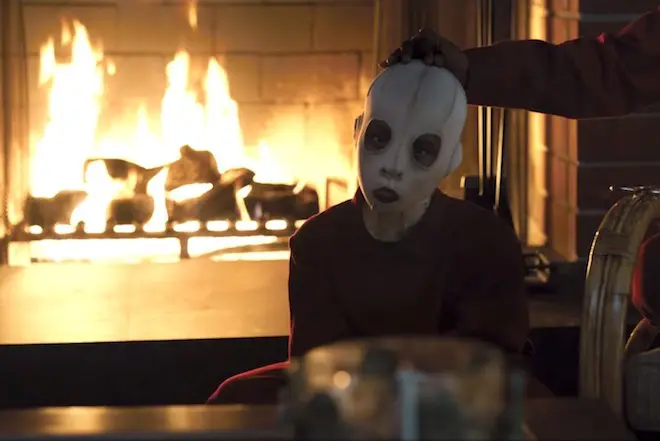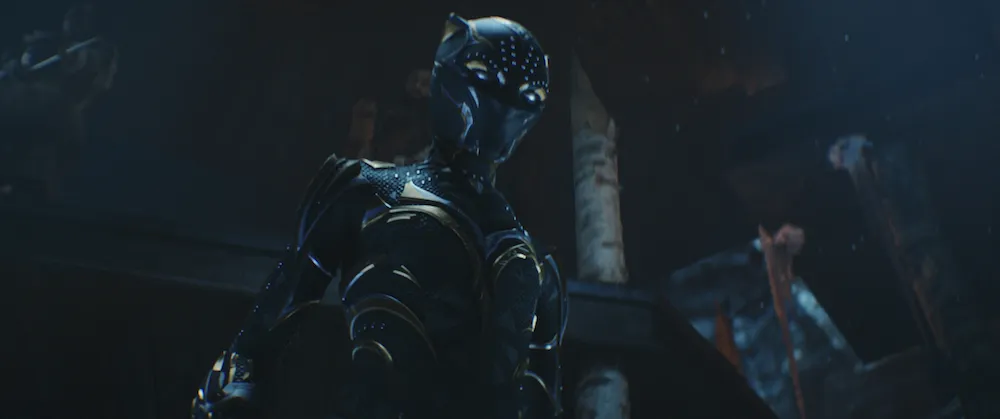If 2017’s Get Out was Jordan Peele’s homage to Rod Serling’s The Twilight Zone, his new film, Us, is his homage to the classic Stephen King novel. I’m talking about the good King novels; the 1,000 page tomes that he wrote in the ’80s, fueled by cocaine and alcohol and Ramones music. And while Get Out had some very poignant racial commentary, Us leaves that behind, sacrificing social commentary for a good old fashioned horror tale the starts strong, loses steam in the middle, and then goes batshit crazy in the third act, but leaves viewers unsatisfied. Just like most of King’s books.
Us stars Lupita Nyong’o and Winston Duke as Adelaide and Gabe Wilson, a married couple with two kids, Zora and Jason, played by Shahadi Wright Joseph and Evan Alex, who are visiting Santa Cruz, California, for a family vacation. Adelaide had a traumatic incident happen to her at the beach pier in Santa Cruz when she was younger, and Gabe, of course, wants to visit the beach to have fun with his family.
The Wilsons meet up with old friends Josh (Tim Heidecker) and Kitty (Elisabeth Moss), and their twin teen girls, Becca and Lindsey (Cali and Noelle Sheldon), and Adelaide cannot get past the sinking fear she has of the place. In various flashbacks, viewers see what happened to her, and the aftermath as she was growing up, but the full story is just under the surface, waiting to be scratched like an annoying itch.
The first night into the vacation, a strange family comes calling to the cabin, a family dressed in red jumpsuits, sandals, and one glove, each carrying a long pair of shears. Also, that family is a twisted, psychotic version of the Wilsons. This begins a wild, harrowing ride through a world turned absolutely upside down, as Adelaide and Gabe try to survive the madness.
The acting is easily the best part of Us. Nyong’o is perfect as Adelaide, and Winston Duke plays the nerdy father with a sense of familiarity. As the world takes its twists and turns, their characters are what holds the family together, and keeps the audience engaged. If Duke’s Gabe had turned into an action hero, or Nyong’o’s Adelaide into the classic female victim, this whole film would have completely fallen apart.
In Us, Academy Award-winner Peele, who writes, directs, and produces, wears his influences on his sleeve. In addition to his love of Rod Serling and Stephen King, there are elements of Spielberg, Carpenter, Hitchcock, and even Dario Argento in his directing style. This is all a good thing, as Peele has taken the best of those master filmmakers and turned himself into a provocative and effective voice in the horror/suspense genre. The bad news here is that Us might be too effective, and after Get Out, Peele could soon find himself pigeonholed into telling “smart, scary tales with twist endings,” much like M. Night Shyamalan, and we all know how that turned out.
Us shows that Jordan Peele is more than a one hit wonder, and his voice is very much welcome in the world of horror and suspense. And even though Us sags in the middle, and the third act is a little too on-the-nose, getting the audience to that point is a fun, if not familiar journey. I wouldn’t call this a scary film, but it does have thrills here and there, and the plot revelation, while choreographed as early as the opening scene, is just big and crazy enough that audiences will be left thinking about it long after the house lights come up.
Us is decent horror film that pays homage to a great many influences, all while establishing Jordan Peele as a true guiding force in modern cinema. If anything, this film serves as a reminder that his Twilight Zone reboot is soon upon us (begins April 1st on CBS All Access), and that he paid close attention to the horror projects — films, books, and TV — of the 1980s. For those of us that lived through it, it sure is nice to be reminded of a time when horror was scary for scares sake, and not just a vehicle for social commentary. Making that switch after Get Out is probably Peele’s biggest achievement here, and for that, we can all be thankful.
Us is rated R and is in theaters on March 22.






